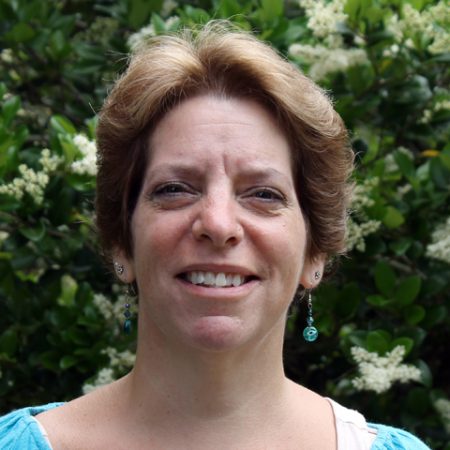
A team of Florida State University researchers has received $50,000 from the National Science Foundation to participate in NSF’s Innovation Corps, an entrepreneurial training program.
Associate Professor Marcia Mardis and doctoral student Jennifer Wood, both from the College of Communication and Information’s School of Information, are part of a three-person team that received a grant from the National Science Foundation to participate in I-Corps.
Mardis is the principal investigator and Wood is the entrepreneurial lead for the project titled, “Web2MARC 2.0: Investigating the Viability of an Integrated Tool for Content Creation and Aggregation.”Lawrence Tinker, the entrepreneur in residence for the Florida Institute for the Commercialization of Public Research, will serve as the third member and business mentor for the team.
The trio will use the funding to investigate the potential market for Web2MARC 2.0, an automatic cataloging and classification tool for educational materials developed by a Mardis-led group at Florida State and funded by the Institute for Museum and Library Services. Web2MARC 2.0 is designed to bridge the gap between digital resources and school libraries by allowing librarians to create descriptive records for curriculum-linked digital learning resources such as videos, simulations and games.
“The National Science Foundation is focusing on encouraging tech transfer,” Mardis said. “Rather than NSF giving researchers grants only to finish the project and have the work end, they want to help researchers understand how to use the skills of entrepreneurship to take their research to market.”
The primary goal of the NSF I-Corps is to foster entrepreneurship that will enable NSF-funded researchers and graduate students to explore commercializingtechnology that has resulted from their research.
In addition to the grant, the program also provides a short course on business development for the team.
Mardis has been working on Web2MARC 2.0 for several years and presented it last year at the Office of Research’s GAP competition, which allows researchers to compete for money to help further their commercialization efforts.
Mardis received $15,000 from the program, which allowed her to build a prototype needed to apply for the I-Corps program.
Together with Wood and Tinker, Mardis will continue her work in searching out a market for their product.
Wood will be the voice and face of the team. The NSF requires that one of the team members be a student.
“When Professor Mardis approached me about working with her on the Web2MARC 2.0 project, I knew immediately that it was something I wanted to be involved with,” Wood said.“My background as a school librarian is a perfect match for the project, and I could see the tremendous value of Web2MARC 2.0 for K-12 education.”
Tinker, who has more than 30 years of experience in research and development, will also bring a wealth of knowledge to the team.
“The NSF I-Corps Teams program is a great opportunity to foster the commercialization of NSF sponsored research through training and mentoring of researchers in innovation and entrepreneurship,” Tinker said.“As the mentor for this project, I am excited to be a part of the team and look forward to working with Marcia and Jen during the course of the program and to determining the viability of moving this technology from research to commercialization.”
At the end of the curriculum, the group will be tasked with cold calling 100 potential customers to explain the technology and see if they would find it useful.
“The I-Corps program is an amazing opportunity to explore the utility of Web2MARC 2.0 both within and beyond that K-12 environment, and take it to the next level,” Wood said.
Added Mardis: “I’m eager to learn how business people think and use that knowledge to transform the role of digital resources in our classrooms and libraries.”




